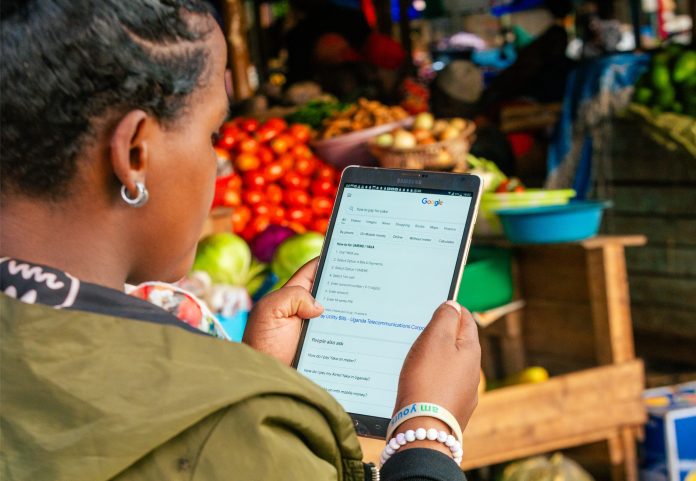In 2015, the Digital Impact Awards Africa (DIAA) study under the HiPipo Include Everyone program revealed a lack of corporate websites among 59% of Uganda’s top 1,000 taxpayers. This absence resulted in higher operational costs and reduced profitability.
However, since then, digital transformation, mainly through corporate websites and online presence, has shown substantial benefits in reducing costs and enhancing customer service. It is important to note that HiPipo’s sustained advocacy, with the support and collaboration of partners and stakeholders, has played a crucial role in advocating for digital innovation, leading to this transformation and continuing to drive digital and financial inclusion across economies.
The financial impact on customers of Uganda’s top 1,000 taxpayers is staggering. They save approximately $1,995,000 daily through digital tools. Over ten years since 2014, this figure has scaled to a monumental $7.28 billion, accentuating the substantial financial benefits of digital adoption. This is a clear testament to the potential for further growth and success through digital transformation.
Digital adoption has led to tangible operational efficiency. Customers can find the information they need online and interact with service providers in real-time. Each online interaction saves customers an average of 30 minutes, and customers of these organisations save approximately 1.5 million hours daily. This boosts organisational efficiency and profitability, aligning with broader economic growth, and stresses the tangible benefits of digital innovation, instilling confidence in the future of digital transformation.
The 2015 HiPipo study highlighted the need for more corporate websites and online presence among Uganda’s top taxpayers. This absence hindered cost reduction, improved service delivery, and customer loyalty. The landscape has changed meaningfully since then, thanks to the ongoing HiPipo’s advocacy with partners.
Today, approximately three million online interactions occur every day among the 1,000 organisations, and each interaction saves an average of 30 minutes, leading to a daily time savings of around 1.5 million hours and a financial impact of approximately $1,995,000. The weekly online interaction count reaches at least twenty-one million, saving approximately 10.5 million hours and generating a financial impact of about $14M. The monthly online interaction count reaches approximately 90 million, saving around 45 million hours and leading to an economic impact of approximately $60M. These figures highlight the efficiency gains and financial benefits of digital transformation to Uganda’s business and financial sectors.
Over a year, these organisations facilitate at least 1 billion online interactions, saving approximately 547.5 million hours and resulting in an economic impact of around $728M. Over a decade, since 2014, these organisations have handled an estimated 11 billion online interactions, saving around 5.475 billion hours, with a financial impact of approximately $7.28 billion.
This usage has far-reaching impacts on enterprises and governments. For instance, digital adoption aligns with national economic growth goals by reducing business costs and increasing customer convenience and profitability. This trend benefits small, micro, nano, SMEs, and individuals running businesses. Effective, flexible policies become more urgent as governments should support digital innovation through favourable policies, recognising its impact on national competitiveness.

The findings of this paper suggest that even more attention should be paid to this effect. We plan to run subsequent surveys covering digital tools and financial services, exploring their combined time-saving and economic growth impact. HiPipo’s advocacy has driven digital innovation in East Africa and beyond for nearly two decades. Thanks to this advocacy, similar outcomes have occurred across different East African economies, just like the current Ugandan outcomes. Through initiatives like the Digital Impact Awards Africa (DIAA), HiPipo has highlighted the transformative potential of technology-based solutions, contributing to enhanced efficiency and economic growth among Uganda’s top taxpayers, SMEs, micro, nano, SHFs, and millions of merchants.
This paper further outlines the telecommunications landscape in Uganda as of March 2023. During this period, the average data consumption for Ugandan telecom subscribers was 1.7GB per month. Over the past two years, data expenditure has decreased by 6%. Internet subscriptions have grown by 1.2 million, reaching 27 million, due to the increasing access to the internet through mobile devices. These mobile devices comprise 39.1 million of the devices accessing Uganda’s telecom network, 21% of which are smart devices.
This paper notes that women, especially in urban areas, are leveraging digital tools to save time and money. However, using digital tools needs to extend to off-grid locations where access to power and energy remains challenging. Women are more likely to be employed in lower-paying jobs and sectors, particularly in developing economies like Uganda, where a weighty portion of the population earning less than 115 USD is female. Therefore, access to digital services should be equal for both genders to ensure inclusive economic development. Access should also be accelerated among youth, women and men to help them find more avenues to improve their income. Digital technologies can impact job opportunities for underrepresented women in the tech industry. Understanding customer demographics can help organisations tailor their services to meet gender needs better. Digital innovation can contribute to broader economic empowerment, which may benefit women in specific sectors or communities where they have been disadvantaged.
The report recommends that leaders prioritise digital presence and recognise its importance in enhancing efficiency, profitability, and economic growth. This includes investing in high-value corporate websites, content and digital channels to improve customer engagement and reduce operational costs. Leaders must focus on mobile platforms as mobile is increasingly the primary channel for digital access in Africa. Enterprises should prioritise responsive, mobile-friendly websites and apps to meet customer needs.
Mobile connectivity is vital in developing individuals and economies, accelerating financial inclusion and creating an inclusive economy that benefits all. This, in turn, leads to the advancement of nations, particularly in terms of economic growth, job creation, and poverty alleviation. The widespread availability of mobile connectivity has enabled individuals, even those in remote areas, to access financial services and participate in the global economy. Moreover, mobile technology has enabled individuals to engage in financial transactions without the need for traditional financial institutions, thereby promoting financial inclusion and reducing the cost of financial services. The result is a more equitable and inclusive economy that benefits everyone, regardless of socio-economic status.
The report highlights the need for enhanced cybersecurity to build customer confidence and trust and ensure safe digital interactions. Digital transformation comes with security challenges, and solutions must be secure, competitive, and universal, essential for sustainable and inclusive growth. Continuous improvement, such as updating the National Information Security Frameworks, is necessary. Partnering with experts like Cyberplc to support all security architecture and technical security assurance domains, such as risk identification, network security, data protection, identity management, posture and vulnerability management, logging, and threat detection, is vital. Regularly evaluating and improving digital strategies is necessary to stay aligned with evolving technological trends and consumer expectations.




